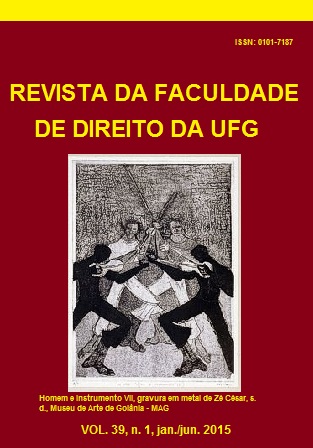A JUSTIÇA DO COMENDADOR (BAIXA PROVENÇA, SÉCULO XIII) - DOI: http://dx.doi.org/10.5216/rfd.v39i1.36481
DOI:
https://doi.org/10.5216/rfd.v39i1.36481Palabras clave:
Justiça. Senhorio. Ordens Militares, Poder Soberano, Provença, Idade MédiaResumen
RESUMO:
As ordens militares, como senhores eclesiásticos, exerceram a justiça temporal sobre populações das quais elas estavam encarregadas. A historiografia, se ele se interessou pelos conflitos de jurisdição que opuseram os poderes soberanos às comendadorias, subestimou, salvo exceções, as atividades judiciárias destas últimas. Os ricos arquivos das ordens do Hospital e do Templo, no Midi Francês, fornecem belas séries de atas da prática judiciária – clamores, inquéritos criminais, processos verbais de condenações... O caso dos dois senhorios templários de Lansac e de Montfrin e as comparações oferecidas pela importante jurisdição hospitalária de Manosque, recentemente e notavelmente estudada, autorizam uma contribuição sobre o papel dos irmãos guerreiros na difusão dos usos jurídicos e no controle social. O pessoal empregado no serviço destas pequenas justiças senhoriais, os procedimentos utilizados pela justiça criminal, a repressão da delinquência ordinária que assolava estes castra da Baixa Provença e, enfim, os limites opostos ao poder coercitivo do Templo pela organização das comunidades e pelo reforço do Estado foram sucessivamente evocados. O funcionamento, os ideais almejados, assim como a ação repressiva, pouco evidenciam a especificidade desta justiça da Igreja que não recusava o exercício do merum imperium e a aplicação das penas aflitivas. Centradas sobre o século XIII, período de transição na história do procedimento, estas primeiras observações desejariam ser prosseguidas para os dois séculos seguintes: a originalidade da justiça do Hospital, com a instauração de uma ordem moral, mais do que cívica, apareceria mais, tanto que seria necessário avaliar a resistência destes senhorios às reconquistas jurisdicionais do Estado principesco.
ABSTRACT:
The military orders, as ecclesiastical gentlemen, exercised the temporal justice over populations which they were in charge of. The historiography, if he got interested about the jurisdiction conflicts that have opposed the sovereign powers to the commanderies, underestimated, with some few exceptions, the judicial activities of these last ones. The rich archives from the orders of the hospital and the temple, at the French Midi, provide beautiful series of the judicial practices - clamors, criminal investigations, verbal processes of condemnations... The case of the two templary landlords of Lansac and of Montfrin and the comparisons offered by the important hospitaller jurisdiction of Manosque, recently and notably studied, authorize an contribution over the role of the warrior brothers on the difusion on the juridical uses and on the social control. The people who ar e employed on the service of those small stately justices, the procedures used by the criminal justice, the repression of the ordinary delinquency that plagued those castra of the Low Provence and, ultimately, the limits opposed to the coercive power of the temple for the organization of the communities and for the reinforcement of the state were successively evoked. The operation, the desired ideals, just like the repressive action, do not show at all the specificity of the church's justice which wouldn't refuse the exercise of merum imperium and the application of the afflictive feathers. Centered over the 13th century, period of transaction on the history of procedure, these first observations would desire to be pursued for the two following centuries: the originality of the hospital's justice, with the establishment of a moral order, more than civic, would appear so much more that it would be necessary to evaluate the resistance of tho se landlords to the court re-conquests of the princely State.
Descargas
Descargas
Publicado
Cómo citar
Número
Sección
Licencia
Os Autores que publicam nesta revista concedem à Revista da Faculdade de Direito da UFG uma licença mundial, sem royalties, sujeita aos termos e condições da Licença Jurídica Creative Commons Atribuição 3.0 Brasil Creative Commons Attribution License
Os autores concedem à RFD UFG todos os direitos autorais sobre os artigos nela publicados, que os mantêm com exclusividade até o advento de domínio público sobre os mesmos.
























